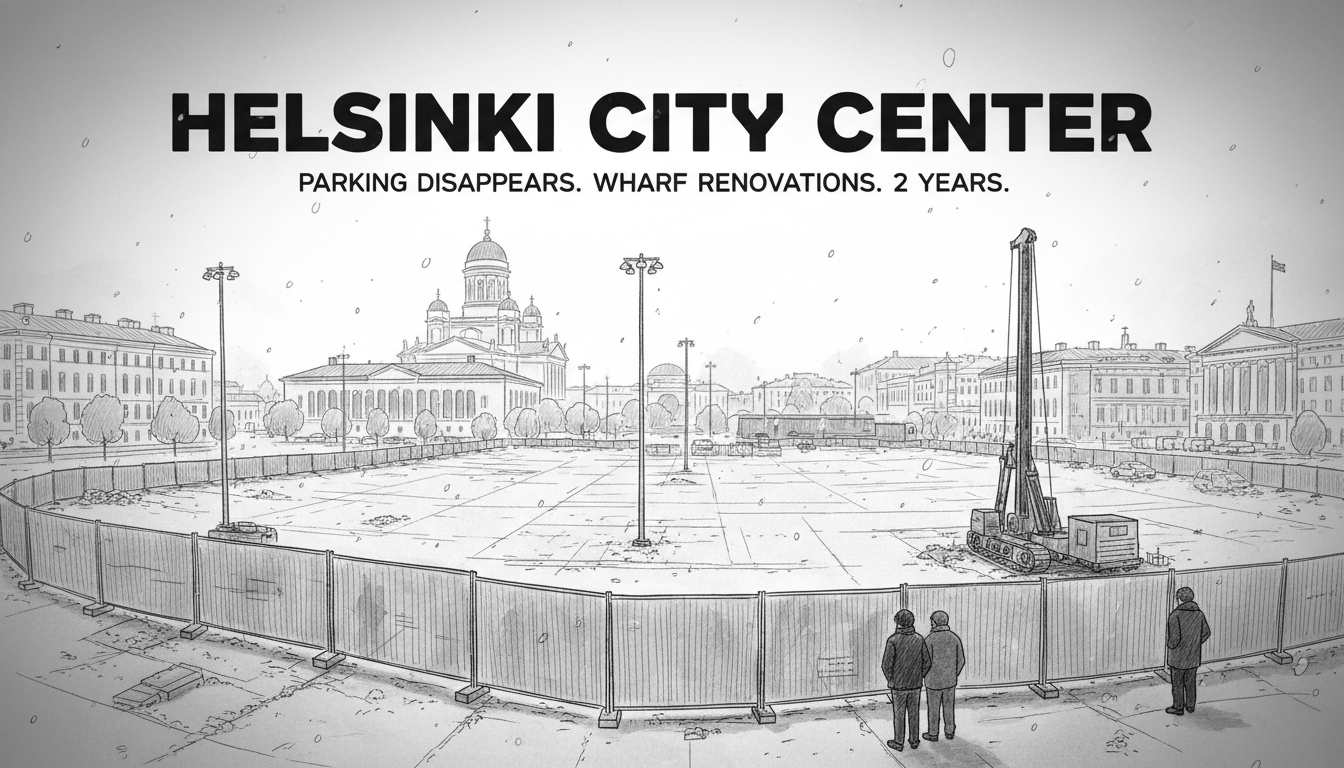A central Helsinki parking area will vanish for at least two years starting in mid-November. The Pakkahuoneenlaituri wharf renovation project will eliminate approximately 40 paid parking spaces near the Old Market Hall and Market Square. Construction work begins on November 13 and will continue until spring 2027.
Project manager Heikki Kosonen confirmed the timeline in a statement. He said the parking spaces will disappear for the work period, which will last at least two years. The parking area sits on city land but falls under port authority management. Construction company Terramare Oy will handle the renovation work.
The project involves completely renewing the old wharf and harbor wall. Workers will fence off the southern side of Vironalaituri as a construction zone. This area development forms part of the broader Makasiiniranta pre-construction phase. Future plans include a new Architecture and Design Museum, office buildings, and public spaces.
This parking loss creates immediate challenges for drivers visiting central Helsinki. The affected parking area serves visitors traveling to the city center by car. The timing coincides with upcoming holiday shopping seasons and tourist periods. City planners must address the reduced parking capacity during peak downtown activity.
Helsinki's urban development frequently creates temporary disruptions for long-term gains. The city has experienced similar construction impacts during previous waterfront renovations. The current situation mirrors parking challenges during the Kamppi construction project years ago. Residents and visitors adapted to those changes over time.
International readers should understand Helsinki's compact city center layout. The affected area sits within walking distance of major attractions and transportation hubs. The city offers extensive public transit options as alternatives to private cars. Visitors can use trams, buses, and metro services to reach the Market Square area.
The two-year timeline seems realistic for comprehensive wharf renovations. Similar infrastructure projects in Nordic capitals often extend beyond initial estimates. Helsinki's harsh winters typically slow construction progress between December and March. The spring 2027 completion date accounts for these seasonal challenges.
City development requires balancing immediate inconvenience against future benefits. The finished wharf will support new cultural institutions and public spaces. Current parking frustrations should yield long-term improvements to Helsinki's waterfront accessibility. The temporary parking reduction pushes the city toward its sustainable transportation goals.

